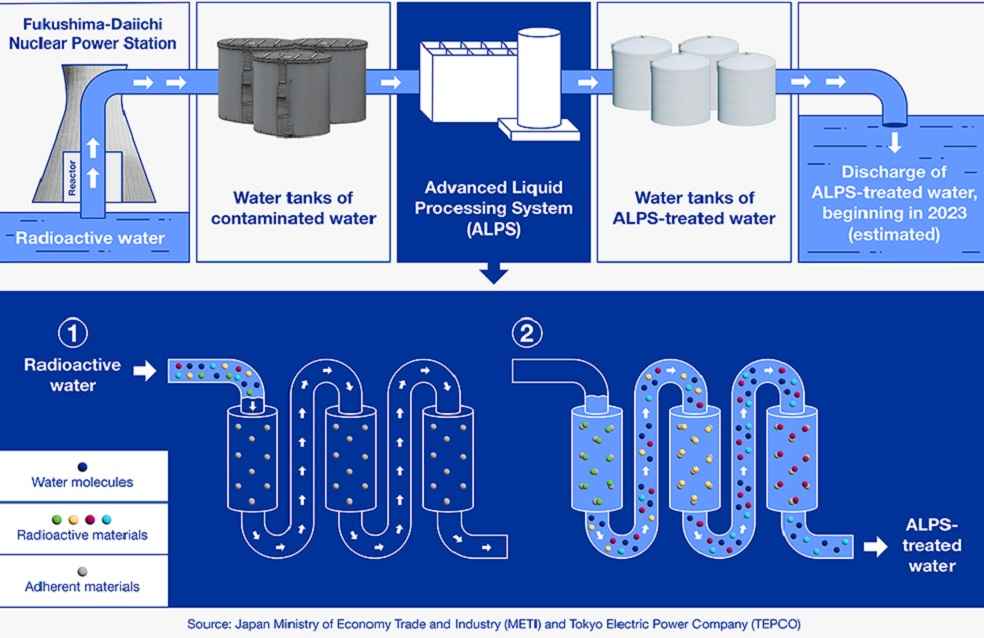Tensions are escalating in the international arena as Russia aligns with China in imposing a ban on Japan seafood, citing the release of treated radioactive water from Japan’s Fukushima nuclear plant into the Pacific Ocean. This move marks a new profound to global diplomatic and trade relationships, as suspicions arise regarding the motivations behind these restrictions.
Rosselkhoznadzor, Russia’s vigilant agricultural watchdog, heralds the embargo on Japanese seafood, aligning itself with China’s provisional countermeasures. Cast under the banner of ‘precautionary measure,’ this decree awaits further confirmation regarding the intrinsic safety of Japanese marine offerings.
Japan, steadfast in its assurances, maintains the treated water meets rigorous safety benchmarks, conforming to globally sanctioned levels of tritium concentration. Despite the blanket of reassurance, a mist of uncertainty envelops the international community, fostering apprehensions concerning prospective health and environmental aftershocks. Such pervasive doubts cast ripples across diplomatic waters, nurturing tensions with adjacent nations and influential commerce confidants like South Korea, Taiwan, and China.

Henry Gao, an astute expert in international trade law, previously implied that the ban seems more rooted in geopolitical maneuverings rather than actual safety concerns.
Scholars and savants in nuclear chemistry, probe the essence of these prohibitions, casting skepticism on their scientific foundation. A nuanced exploration unveils potential subtexts of economic strategy and political chess within this tableau of trade restrictions.
South Korea faces escalating pressure to broaden the existing import restrictions against Japan. Notably, Seoul has upheld a steadfast embargo on fisheries products originating from Fukushima and select neighboring prefectures since 2013, in a resolute stance aimed at safeguarding against potential radiological contaminants

Japan navigates these turbulent tides with scientific reasoning, cultivating the data to illuminate the roots of its actions and to dispel shadows of doubt. Tokyo, armed with a lexicon of transparency, endeavors to foster understanding and dissolve the barricades of resistance that stand against the flow of its seafood exports.
Earlier, Japan actively pursued intervention from the World Trade Organization (WTO) concerning China’s recent prohibition on seafood imports.
Analysts probe deeper, exploring the geopolitical underpinnings of these actions. Suggestions arise that the bans may be influenced partly by Japan’s outspoken position against the Ukraine war. Russia and China’s solidarity appears strengthened amidst Western attempts to isolate them following contentious global events, with their partnership hailed as ‘no limits.’

As global scrutiny intensifies, the unfolding situation presents a complex tapestry of health concerns, economic interests, and political dramas. The evolving narrative will undoubtedly be keenly observed, as it carries profound implications for international relations and global trade paradigms
DON’T MISS IT : Japan Seeks WTO Mediation Over China’s Seafood Ban



